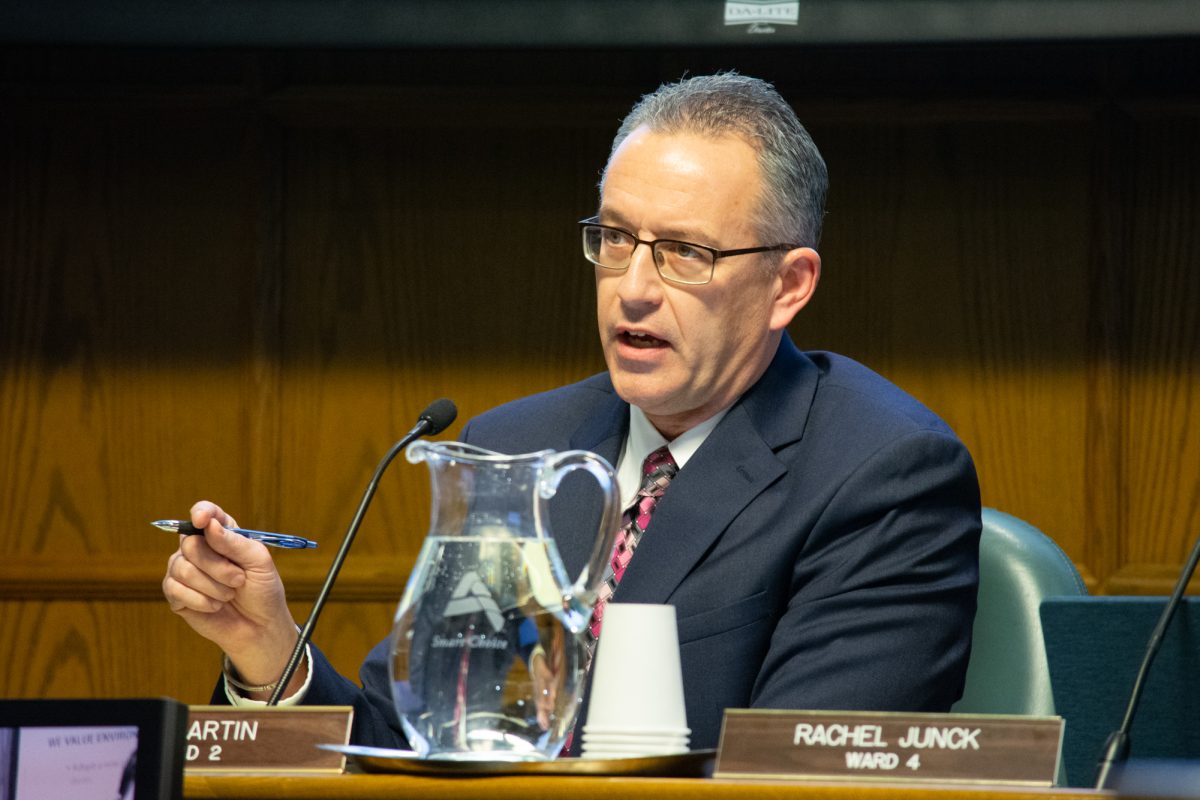Bahl: GMOs present solution, not threat
There is a lot of confusion about the concept of genetically modified organisms, and whether they are harmful to our health. GMOs generally get a bad reputation because they are labelled as unnatural and inorganic, which is true — they are neither natural nor organic.
March 9, 2014
What are GMOs? Are they bad for us? Are they unnatural and harmful? There is a lot of confusion about the concept of GMOs, otherwise known as genetically modified organisms, and whether they are harmful to our health. GMOs generally get a bad reputation because they are labelled as unnatural and inorganic, which is true — they are neither natural nor organic. People fear them because there is a persisting belief that they are unhealthy and should not be consumed. Contrary to popular opinion and understanding, the benefits associated with the use of biotechnology and GMO crops are necessary in our world and are not as terrible as most people may think.
The Department of Agriculture defines GMOs as living organisms that have been modified by inserting a gene from an unrelated species. The addition of genes does not occur naturally by sexual reproduction, so the organism must be altered by biotechnological means. Herein lies the controversy. It should be noted, however, that changing the organism by unnatural means does not necessarily make it “bad.”
The biotechnology used is essentially genetic engineering, technology that tries to harness cellular and bio-molecular processes with the goal of improving our lives and the health of our planet by producing desirable traits in plants and animals. Some common plants that we eat everyday undergo genetic modification including tomatoes, potatoes, rice, raspberries and — probably the most well-known — corn. The original goal of biotechnology and genetically modified foods was to incorporate insect resistance and herbicide tolerance, but it has since expanded to develop such traits as higher densities of vitamin A and iron in rice. We have even begun selecting and modifying attributes like fat types in the foods we produce.
All of these goals explain the popularity of GMO use and its important benefits on a global scale. The development and use of GMOs have been able to help address the problem of world hunger and the increasing food needs of our growing human population. By modifying plants, for example, we are able to generate a higher crop yield, decrease the need for pesticides, develop more nutrient-dense foods to reduce risk of dietary deficiencies and produce allergen-free foods. With greater disease resistance in plants, less of the crop yield is lost to plant sickness, which is important in places of poverty so that all that is sowed can also be reaped.
The International Food Information Council states that the use of biotechnology is essential to agricultural sustainability due to the decreased need for insecticides, reduction of greenhouse gas emissions and preservation of soil quality. The enhancement of nutrient profiles is also very important, especially in places where vitamin and mineral deficiencies are common. For example, golden rice was developed by increasing vitamin levels to address the vitamin A deficiency across various cultures. All of these outcomes are attributed to the use of GMOs and are making huge bounds in bettering our environment and global conditions.
Despite these indisputable benefits from GMOs, the uncertainty about them persists as well. Most people who are not convinced of the positives get hung up on the possibility of being harmed by these organisms. Arguments range from GMOs being found dangerous to rats, having too quick of testing procedures and low-rigor testing. However, those claims are ill-founded since these foods are inspected by the USDA, Food and Drug Administration and the Environmental Protection Agency, all of which regulate and facilitate safety testing on the crops and animals that are produced through biotechnology. These foods have been studied and deemed safe by regulatory agencies, scientists, health professionals and have even been endorsed by organizations like the American Medical Association.
Given the pros and cons, GMOs and the use of biotechnology on crops should be more widely accepted and supported by the population since we are in desperate need of a cleaner, more sustainable agriculture, a more efficient way of feeding a growing population and viable ways to address nutrient deficiencies in developing countries. The benefits far outweigh the possible harm — which may even be of no concern at all. We should look to all of the organizations that are in favor of GMOs and change our society’s rather hesitant view to one of support for all the world-changing possibilities these foods may hold.







